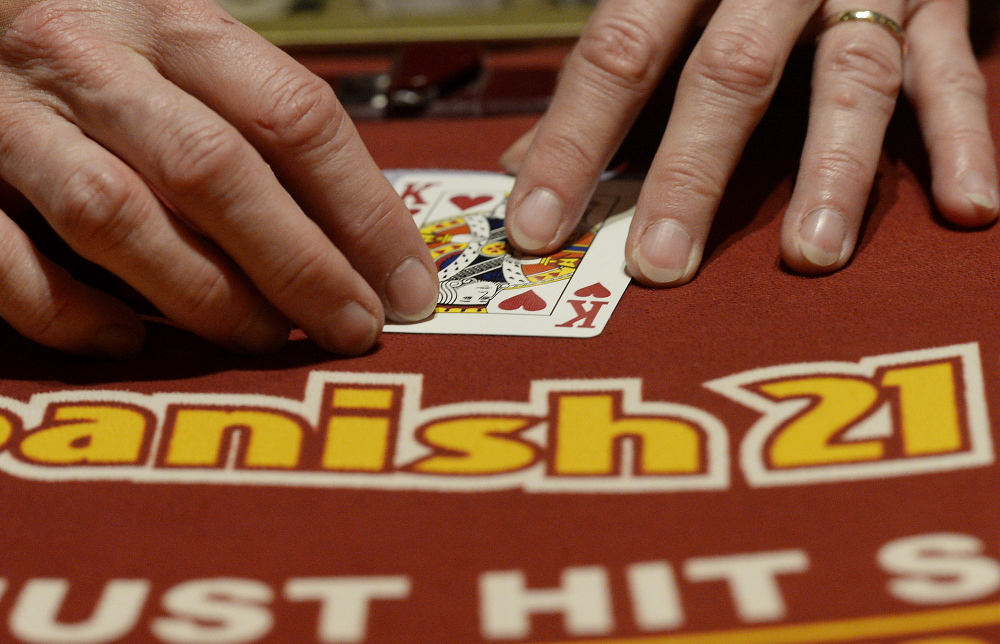The campaign that sought to build a casino in York County is appealing a decision invalidating thousands of petition signatures, setting up the second showdown this year between initiative campaigns and the Secretary of State’s Office over the validity of signatures on petition sheets prepared by a political consulting firm.
Secretary of State Matt Dunlap invalidated more than 55,000 of the 91,294 signatures submitted by Horseracing Jobs Fairness, a campaign mounted by the sister of Las Vegas gambling mogul Shawn Scott. If successful, it would have allowed Scott – and only Scott – to build a casino in York County.
The campaign needed 61,123 signatures to qualify for the ballot, but only 35,518 were found to be valid by Dunlap’s office.
The lawsuit, filed in Kennebec County Superior Court on Friday, argues that Dunlap’s office applied the standards of petition signature review inconsistently and arbitrarily, and that there are no explicit guidelines for how to verify the authenticity of a notary’s signature when it has been questioned.
At the center of the dispute is Olympic Consulting, a Lewiston-based firm run by former state legislator Stavros Mendros, who is a complainant in the appeal.
Petition-gathers are required to sign an affidavit in the presence of a notary swearing that they witnessed each signature. The notaries are responsible for verifying the signature-gatherer’s identity.
Mendros, who in 2007 pleaded guilty to petition irregularities, is one of the notaries and signers of the casino petition.
“We feel we’re on firm ground and that we did our due diligence when reviewing the petitions,” Dunlap said Friday night. “We’re confident that the court will uphold our decision.”
In Dunlap’s decision invalidating the petitions last week, he cited two reasons for rejecting signatures: Some belonged to people who are not registered voters, and a larger group of signatures – 32,526 – were invalid because the circulator’s signature on the circulator’s oath, or the signature of the notary listed as having administered the oath, didn’t match the signatures on file with the state.
“It was clear just by looking at the documents that somebody had a stack of petitions and somebody was just notarizing them,” Dunlap said on March 2.
The suit alleges that instead of verifying each notary’s signature against a known verified signature, Dunlap’s office examined a representative sample of those signatures. When an irregularity was identified in the smaller number of signatures examined, all of the petitions signed by that notary were invalidated, a practice that is against the state’s own guidelines, the suit alleges.
The lawsuit also raises questions about whether the subjective visual comparison of signatures by non-expert staff members is permissible.
Cheryl Timberlake, treasurer for Horseracing Jobs Fairness, didn’t return a message seeking comment Friday night.
Although appeals of signature-gathering decisions have been rare in the past, this appeal is the second this election cycle, coming after the Campaign to Regulate Marijuana Like Alcohol announced it would appeal the rejection of signatures in its bid to place a question about legalizing marijuana on the November ballot.
Mendros and his firm also were involved in gathering signatures for the marijuana legalization effort. In that case, 5,099 petition sheets containing 26,779 signatures were all notarized by Mendros and subsequently invalidated by Dunlap’s office.
Send questions/comments to the editors.



